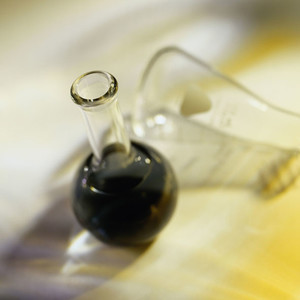Researchers at Mount Sinai School of Medicine, New York, USA, found that physicians prescribing unnecessary treatments or diagnostic tests, spanning a broad range of clinical conditions, costs the US healthcare system an extra US$6.7 billion annually. The findings, published in Archives of Internal Medicine, attributed prescribing of brand-name statins instead of generic statins as accounting for most of the excess cost [1].
Brand-name statins costing healthcare system US$6.7 billion
Biosimilars/Research
|
Posted 21/10/2011
 0
Post your comment
0
Post your comment

For the study, the researchers reviewed an earlier study [2] that identified the top five overused clinical activities in each of three primary care specialties: paediatrics, internal medicine and family medicine. With this information, they performed a cross-sectional analysis of data from the National Ambulatory Medicare Care Survey and the National Hospital Ambulatory Medical Care Survey.
The authors found that more than US$6.7 billion was spent in excess healthcare spending in the primary care setting in 2009. Prescribing brand-name instead of generic statins accounted for 86%, or more than US$5.8 billion, of the unnecessary spending.
The remaining wasteful spending was attributed to:
- unnecessary bone density scans in women under 65 years (US$527 million)
- unnecessary imaging (CT scans, MRIs or X-Rays) for back pain (US$175 million)
- over-prescription of antibiotics for sore throats in children, excluding cases of strep throat or fever, (US$116 million)
- unnecessary complete bloodwork orders during physical exams ($32 million)
- other unnecessary tests and treatments, including annual echocardiograms, urine testing, pap tests, and cough medicine prescriptions for children.
The analysis demonstrated ‘considerable variability in the frequency of inappropriate care’, however the data show that even activities with ‘small individual costs’, such as the prescribing of medication e.g. statins, could ‘result in large overall costs to the healthcare system’.
The authors noted that the analysis was limited to the data provided by the surveys and that they were conservative in their assessment of inappropriate care. They conclude that this type of analysis should be extended to medical specialties outside of primary care and that physicians should make efforts in their own practices to evaluate costs and reduce them where necessary in order to achieve affordable, high quality care.
Editor’s comment
This study shows the huge costs that can be associated with prescribing brand-name statins when effective generic alternatives are available.
Please feel free to share your thoughts via email to editorial@gabionline.net or in the comments section below. What are your views on the use of generic statins? How can pharmacists be encouraged to carry out automatic substitution of brand-name for generic statins or medicines in general? Should physicians be forced to prescribe by INN? How can patients be encouraged to ask for generics?
If you are interested in contributing a research article in a similar area to the GaBI Journal, please send us your submission via science@gabi-journal.net.
Related articles
Efficacy and tolerability of generic and branded atorvastatin
Sun gains tentative approval for generic Crestor
Reference
1. Kale MS, Bishop TF, Federman AD, Keyhani S. "Top 5" lists top $5 billion. Arch Intern Med 2011. doi:10.1001/archinternmed.2011.501
2. The Good Stewardship Working Group. The “top 5” lists in primary care: meeting the responsibility of professionalism. Arch Intern Med. 2011;171(15):1385-90. doi:10.1001/archinternmed.2011.231
News
FDA approves Poherdy (first interchangeable pertuzumab) and Armlupeg (pegfilgrastim) biosimilars
EMA recommends approval for insulin glargine biosimilar Ondibta and denosumab biosimilar Osqay
General
Samsung Bioepis wins Pyzchiva case; Regeneron patent rulings threaten foreign biosimilars
Chinese biosimilars go global: growth, partnerships, and challenges
What is the future for the US biosimilar interchangeability designation

Biosimilars/Research Posted 05/06/2025
Biosimilar clinical efficacy studies: are they still necessary?

Biosimilars/Research Posted 27/05/2025
The best selling biotechnology drugs of 2008: the next biosimilars targets








Post your comment